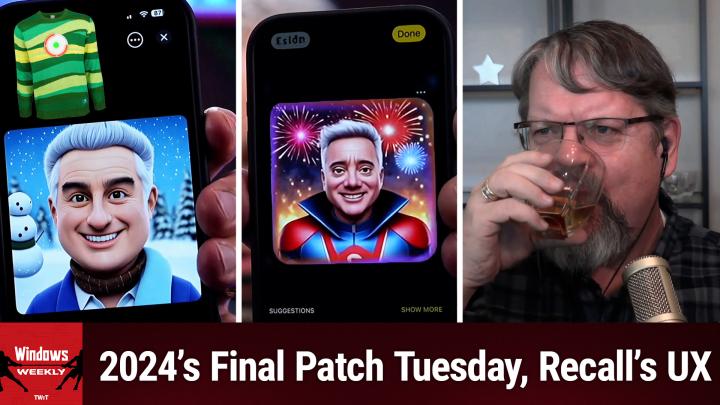Microsoft Recall: Privacy, Usability, and Enterprise Implications
AI generated, human spot cleaned.
In a recent episode of Windows Weekly, tech experts Paul Thurrott, Richard Campbell, and Leo Laporte took a critical look at Microsoft's Recall feature for Copilot+ PCs, unpacking its current state, potential, and lingering concerns. The AI-powered feature, now available in the dev channel for x64 systems, remains a topic of heated discussion. Currently, it's limited to the latest Copilot+ PC hardware, which significantly reduces its immediate user base. Paul Thurrott estimates that the number of users actively testing the feature is extremely small - a combination of Copilot+ PC owners who are also Windows Insiders.
Security Concerns and Overcompensation
While initial privacy concerns sparked widespread debate, the panel suggests Microsoft may have overcorrected in its approach to security. The most significant user experience challenge comes from the authentication mechanism:
- Recall requires Windows Hello Enhanced Sign-in Security (ESS) authentication
- Every time you close and reopen the app, you must re-authenticate
- The authentication process is not just a quick biometric check, but requires additional button clicks
Thurrott describes this as "what bad Multi-Factor Authentication looks like," arguing that the heavy-handed security approach might ultimately discourage user adoption.
Enterprise Potential
Richard Campbell sees significant potential for Recall in enterprise environments. Microsoft has evolved its approach, now allowing enterprises to control Recall through policy settings, prevent screenshots of sensitive applications or information, and opt in or out of the feature at an organizational level.
Storage and Performance Insights
Contrary to early concerns about storage consumption, Thurrott reported minimal impact. The default storage allocation is 150 GB. On his device, Recall is currently using only about 2 GB. Plus, screenshots are not consuming excessive space so far.
The Bigger Picture
The most significant critique is the feature's current limitation to a single device. Thurrott emphasized the need for cross-device synchronization to make Recall truly useful - a capability Microsoft has acknowledged but not yet implemented. While the current implementation has drawbacks, the panel remains cautiously optimistic. The feature represents an innovative approach to digital memory and productivity, even if its current execution leaves room for improvement.
Want to hear the full, nuanced conversation? Tune into the latest Windows Weekly podcast for an in-depth exploration of Microsoft's AI approach, Intel’s troubled status, the last Patch Tuesday of 2024, Xbox news, and more!
